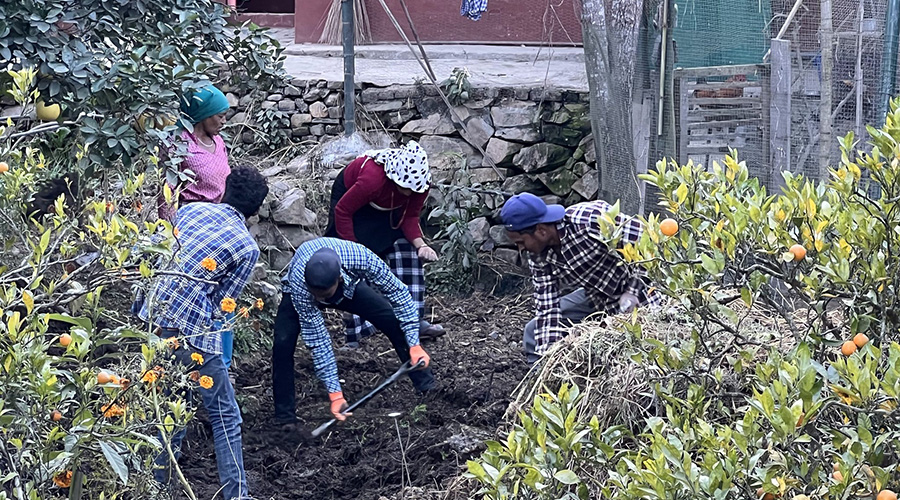
A Service Learning trip to Nepal can be a transformative experience, combining travel, cultural immersion, and meaningful volunteer work. Nepal, nestled in the heart of the Himalayas, offers a rich cultural heritage, stunning landscapes, and warm hospitality. Whether you're interested in education, community development, environmental conservation, or healthcare, there are various service opportunities available to make a positive impact on local communities.
“Once a year, go someplace you’ve never been before.”Dalai Lama
Here are some steps and considerations for organizing a Service Learning trip to Nepal:
Choose a Reputable Organization: Start by researching and selecting a reputable organization that specializes in organizing Service Learning trips to Nepal. Look for organizations that have a track record of responsible and ethical volunteering practices.
Define the Purpose: Clearly define the purpose and objectives of the trip. Identify the specific areas or communities you wish to serve, such as education, healthcare, environmental conservation, or community development.
Duration and Dates: Determine the length of your trip and the specific dates you plan to be in Nepal. Service Learning trips can range from a few weeks to several months, depending on the project and your availability.
Cultural Preparation: Familiarize yourself with Nepali culture, customs, and etiquette. Understanding and respecting local traditions will help you engage better with the community you'll be serving.
Fundraising: Depending on the organization and the nature of the project, you may need to fundraise to cover your travel expenses and support the local initiatives. Create a fundraising plan and seek support from family, friends, or through crowdfunding platforms.
Visa and Travel Logistics: Check the visa requirements for Nepal and ensure you have all necessary travel documents. Coordinate travel logistics, including flights, accommodations, and transportation within Nepal.
Safety and Health: Prioritize your safety and health during the trip. Obtain necessary vaccinations, carry a basic first-aid kit, and follow any safety guidelines provided by the organization.
Language Skills: While many Nepalese people in urban areas speak English, learning some basic Nepali phrases can greatly enhance your communication and interactions with locals, especially in rural communities.
Accommodation and Meals: Confirm your accommodation arrangements and the availability of meals during your stay. Some organizations provide homestay options, which allow you to immerse yourself more deeply in the local culture.
Project Implementation: Upon arrival in Nepal, engage in the planned Service Learning project. Whether it's teaching English, assisting in healthcare facilities, working on community development initiatives, or supporting environmental efforts, approach your work with dedication and sensitivity.
Cultural Exchange: Embrace opportunities for cultural exchange. Participate in local festivals, learn traditional arts and crafts, and share aspects of your own culture with the Nepalese community.
Reflection and Impact Assessment: After the trip, take the time to reflect on your experiences and the impact of your service. Share your stories with others to promote awareness and understanding of the needs and strengths of the Nepalese communities you encountered.
Remember that Service Learning is a two-way experience. While you'll be contributing to the community, you'll also gain valuable insights, personal growth, and a deeper understanding of global issues. Always approach your Service Learning trip with an open mind, respect, and a willingness to learn from the people you meet.